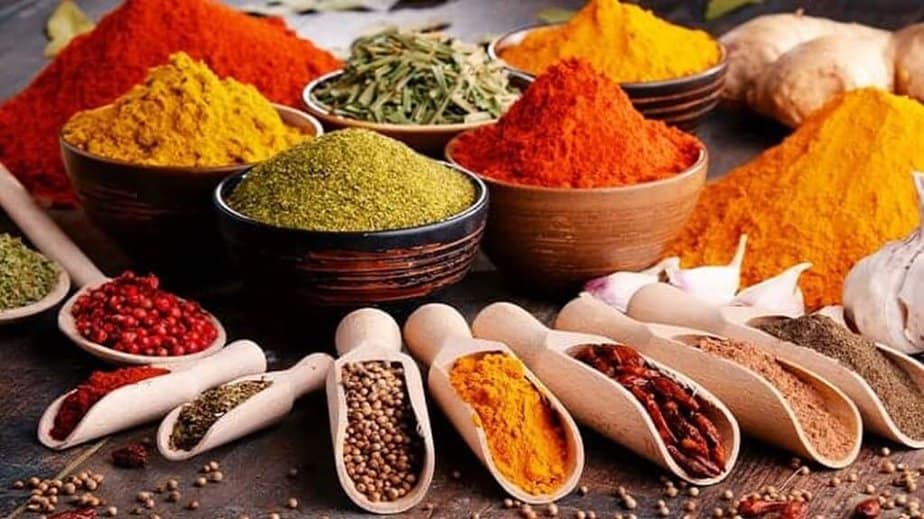Different flavors of cuisines across the world are influenced by indigenous spices specific to each region. For example, allspice is dominant in Jamaican cooking, cumin and chilies are central to Mexican recipes, ginger, and turmeric form the crux of Indian dishes.
The food culture of the world has drastically changed over the years, and now even home cooks prepare a variety of popular dishes from other regions and countries. A home cook can’t buy all the spices from different parts of the world, thus using a spice substitute becomes necessary. Also, some dislike the taste of spices or are allergic to some of them.
Choosing the right spice substitute is challenging, as each spice has unique flavors and aromas. However, you can still manage your dish with the closest spice substitutes in consonance with the general taste profile of the dish.
Note, a substitute somewhat harmonizes the taste of the original, but it’ll never give the originally intended flavor of the dish. If you are not sure of the substitution ratio, always start adding the substitute spice in just half of the original ingredient of the recipe; then keep increasing till you achieve the perfect balance of flavor.
Spice Substitutes List
Every cook should know the best stand-in ingredients for each of the spices used in cooking. Here is the list of 39 common spices and their substitutes:
Achiote Powder: substitute safflower, saffron, or turmeric.
Allspice: substitute cinnamon, nutmeg, or cloves.
Annatto Seeds: substitute safflower, saffron, or turmeric.
Anise Seeds: substitute fennel seed or a few drops of anise extract.
Asafoetida: substitute a blend of onion powder and garlic powder, a mixture of leeks and fresh garlic, chive, or shallots.
Black Mustard: substitute brown mustard seeds, white mustard seeds, or mustard powder.
Caraway Seeds: substitute anise seeds, fennel seeds, nigella seeds, or dill seeds.
Cardamom: substitute a blend of ginger and cinnamon, cinnamon and clove, nutmeg and cinnamon, or allspice.
Carom Seeds: substitute dried thyme, Mediterranean oregano, marjoram, or dried tarragon.
Celery Seeds: substitute celery leaves and stalks, celery salt, celery flakes, lovage, or dill seeds.
Chervil: substitute tarragon, fennel leaves, parsley, dill leaves, or cicely.
Chia Seeds: substitute flax seeds, hemp seeds, wheat germ, Psyllium husk, or tapioca starch.
Cinnamon: substitute cinnamon extract, allspice, cardamom, a blend of cloves and ginger, or a blend of nutmeg and cloves.
Clove: substitute nutmeg, allspice, cinnamon, a blend of cardamom and cinnamon, or mace.
Coriander: substitute parsley, Thai basil, cumin, or caraway.
Cumin: substitute caraway seeds, coriander seeds, or blended chili powder.
Fennel Seeds: substitute anise seeds, licorice root, caraway seeds, or dill seeds.
Fenugreek: substitute maple syrup, mustard, curry powder, or a blend of mustard seeds and fenugreeks.
Flaxseed: substitute chia seeds, hemp seeds, wheat germ, almond meal, or yogurt.
Galangal: substitute fingerroot, ginger, lemongrass, or a blend of cinnamon and mace.
Garlic Powder: substitute granulated garlic, garlic salt, minced garlic, fresh garlic cloves, or garlic flakes.
Ginger: substitute galangal, allspice, mace, cinnamon, or nutmeg.
Grains Of Paradise: substitute black peppercorns, cardamom, sansho powder, pink peppercorns, or pepperwort.
Horseradish: substitute mustard seeds, wasabi, ginger, black radish, or horseradish sauce.
Juniper Berries: substitute rosemary, gin, caraway seeds, or cardamom.
Lemon Verbena: substitute lemongrass, lemon balm, lemon basil, lemon zest.
Mace: substitute nutmeg, cinnamon, allspice, or pumpkin pie spice.
Mahlab: substitute almond extract, anise extract, dried apricot kernel, or ground fennel seed.
Mustard: substitute prepared mustard, horseradish powder, turmeric powder, or wasabi powder.
Nigella Seeds: substitute celery seeds, oregano, cumin seeds, or black sesame seeds.
Nutmeg: substitute mace, cinnamon, garam masala, apple pie spice, allspice, or pumpkin pie spice.
Poppy Seed: substitute black sesame seeds, flax seeds, chia seeds, hemp seeds, or nigella seeds.
Saffron: substitutes turmeric, safflower, annatto, or marigold flowers.
Star Anise: substitute Chinese five-spice powder, anise seeds, a blend of anise seeds and fennel seeds, allspice, a blend of caraway seeds and tarragon, or a blend of clove and cassia bark powder.
Sumac: substitute lemon pepper seasoning, za’atar, tamarind, or vinegar.
Tamarind: substitute lime/lemon juice, Worcestershire sauce, pomegranate molasses, rice vinegar, or mango powder.
Turmeric: substitute curry powder, ginger, mace, or a blend of smoked paprika,
Vanilla: substitute maple syrup, almond extract, bourbon, vanilla almond milk, or almond powder.
How To Substitute Spices?
Here are a few important pieces of information to note while choosing a spice substitute:
1. Different Flavor
Every spice is unique and it’s almost impossible to mimic the original taste of spice with another spice or a blend of spices. At the most, the replacement ingredient possesses somewhat the same aroma and intensity of flavor. Importantly, the alternative ingredient should complement the other ingredients in your dish.
2. Start with Half the Amount
When you’re using the substitute ingredient for the first time, it’s wise to start adding the new spice to your dish in half the amount of the original spice in your recipe. Let your taste buds decide how much more of the substitute ingredient is to be added towards the end of cooking.
3. Using Dried Or Fresh Spices
In the case of some spices, it’s just okay to substitute dried ingredients with fresh produce of the same spice or others and vice versa. For example, celery seeds can easily be substituted with fresh leaves and stems of celery. Typically, 1 teaspoon of dry ground spice is equivalent to 3 teaspoons of fresh spice. Fresh spices, especially the whole leaves, stems, or roots, have a significant effect on the texture of your dish.
Related articles:
